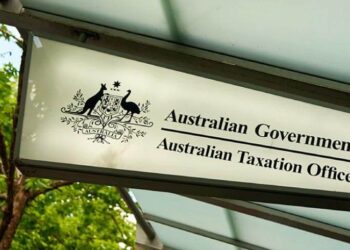Where the tenant has no connection (direct or indirect) to the SMSF landlord, there is unlikely to be SIS Act complexities, Cooper Grace Ward Lawyers partner Clinton Jackson said in a blog.
However, Mr Jackson said offering rent relief (or other incentives) is fraught with SIS Act compliance risks where:
- the tenant is a related party or related trust,
- a member, relative or a member or related party/trust has an underlying economic interest in the tenant.
Issues around complying with SISA
According to Mr Jackson, an SMSF that provides rent relief (or other incentives) risks breaching a number of SIS Act compliance provisions, such as:
- Sole purpose test – as the reason for offering the rent relief (or other incentive) could be viewed as to assist the tenant, not increasing the retirement benefits of the SMSF members
- Financial assistance – as the rent relief (or other incentive) will provide a financial benefit to the member or relative personally (either directly or indirectly) outside the SMSF
- Arm’s-length dealing – as it could be difficult to establish the SMSF is dealing with the tenant in the same manner as they would an unconnected tenant
“A strict interpretation of these rules requires the SMSF to enforce the terms of an existing lease, including taking all necessary steps to collect the full rent payable, potentially down to taking possession or enforcement action. This is the case even if this would have a detrimental impact on the tenant or the members (personally),” Mr Jackson said.
“Standard provisions in leases regarding the ability to amend the lease term, and charging interest on rent shortfalls, will not help the SMSF overcome the potential SIS Act compliance consequences.”
Rent relief depends on several factors
Mr Jackson advised that it will be possible for an SMSF to provide rent relief (or other incentives) provided the SMSF can establish it is in the best interests of the SMSF.
However, what exactly is required to establish this (and provide the best chance of fending off the ATO) will depend on:
- the circumstances of each SMSF
- the circumstances of each tenant, including its cash flow, operations and the restrictions imposed by COVID-19
- the terms of the existing lease
- the property that is the subject of the lease, including its location and the ability for it to be leased to another tenant
- comparative rent relief (and other incentives) being offered by arm’s-length landlords
“Because of the seriousness of the SIS Act compliance risks, obtaining sufficient evidence to justify the rent relief or other incentive will be vital. It will also be time-consuming and require detailed analysis and justification,” Mr Jackson said.
“It is also essential the new arrangement is properly documented. If rent relief or other incentive is provided without obtaining sufficient evidence or properly documenting the arrangement, there is a high risk of the ATO taking adverse action against the SMSF, such as administrative penalties of up to $12,600 per breach per trustee or non-compliance.”



Agree with Gino. If rent relief is legislated and necessary, surely it becomes an arms-lemgth arrangement. The SMSF isn’t showing any favours and wouldn’t be doing anything different if the tenant wasn’t associated. Do you require the SMSF to potentially break one law by evicting the tenant so they can comply with SISA?
As an SMSF auditor, I have already had one query in this regard. My advice to the accountant was to seek ATO advice and, if necessary, a private ruling that providing rent relief would not place the fund in breach of the SISA. In that case, I believe the SMSF would be safe, but of course, adequate evidence would be required by the ATO.
Surely if it Government Legislation and the Landlord has no option, SISA can be overidden. I think we are overeacting befpre the even and scaring people.